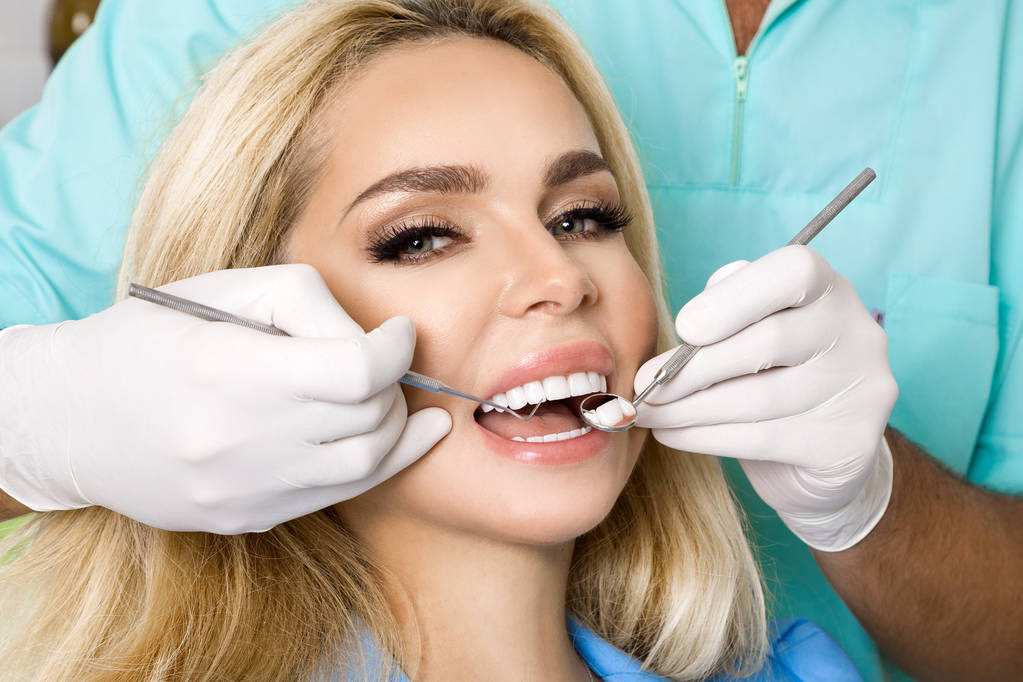The price of your treatment will be determined by the type of veneer material used and the number of veneers required. The cost of veneers, financing alternatives, and strategies to save are all discussed in this article.

What are Veneers?
The various varieties of veneers are listed below. The most natural-looking and long-lasting veneer choice is porcelain veneers. Porcelain laminate veneers are also very biocompatible, which means they don’t harm the gums or other soft tissues in the mouth. Because porcelain is quite aesthetically pleasing, these veneers can greatly improve the appearance of your smile.
Composite veneers are manufactured of composite resin, which is made up of a combination of inorganic and organic components. They mix in well with your natural tooth colour, but they are susceptible to stains and do not last as long as porcelain.
Veneers by Lumineers are a type of veneer. They’re made of the ultra-thin porcelain laminate and require very little prep before installation. A luminaire is placed over your tooth enamel, with less natural tooth material removed, unlike porcelain veneers.
Snap-on veneers are another name for removable veneers. Instant veneers and custom-made clip-on veneers are the two types of removable veneers.
Here are the different types of veneers
- Porcelain veneers
The most natural-looking and long-lasting veneer choice is porcelain veneers. Porcelain laminate veneers are also very biocompatible, which means they don’t harm the gums or other soft tissues in the mouth. Because porcelain is quite aesthetically pleasing, these veneers can greatly improve the appearance of your smile.
- Composite veneers
Composite veneers are manufactured of composite resin, which is made up of a combination of inorganic and organic components. They mix in well with your natural tooth colour, but they are susceptible to stains and do not last as long as porcelain.
- Lumineers
Veneers by Lumineers are a type of veneer. They’re made of the ultra-thin porcelain laminate and require very little prep before installation. A luminaire is placed over your tooth enamel, with less natural tooth material removed, unlike porcelain veneers.
Snap-on veneers are another name for removable veneers. Instant veneers and custom-made clip-on veneers are the two types of removable veneers.
Bonded Veneers
Senior dentist crafts and bonds bonded veneers (composite veneers, direct veneers, chair-side veneers, or resin) to your tooth enamel. Composite resin is used to make bonded veneers, which our senior dentist moulds. Choosing an experienced practitioner who can deliver the outcomes you desire is critical.
Bonded veneers are a less invasive technique that gives you instant results. The operation is usually less complicated, costs less, and takes less time. On the other hand, Bonded veneers do not last as long as porcelain veneers and are not stain resistant.
How Much Do Veneers Cost?
Because veneers are considered cosmetic surgery, dental insurance normally does not pay the expense. The price of veneers is influenced on the type you choose, your dentist’s location, and the quantity of veneers you receive.
A conventional veneer costs anywhere between $600 and $1,500 per tooth on average. Veneers made of porcelain are the most expensive.
Prepless (no-prep) veneers, like Lumineers, are less expensive. They usually range in price from $650 to $1,500 per tooth.
The cost of a dental veneer varies based on the type:
- Porcelain veneers range in price from $925 to $2,500. (per tooth)
- Veneers made of composite resin range from $600-$1,500. (per tooth)
- Lumineers range in price from $800 to $2,000. (per tooth)
- Removable veneers (temporary veneers) range from $470 to $600. (for both upper and lower teeth)
- Insurance does not cover veneers. They range in price from $470 to $2,000 per tooth.
What’s Included in the Treatment Cost?
Veneer placement is a non-invasive technique that is usually done in two sessions. The following is a list of what is included in the treatment cost:
- Enamel is being removed to make way for the veneer.
- An impression (or mould) of the tooth structure after it has been prepared.
- A veneer colour that complements your smile.
- A custom-made veneer (this stage can take several weeks; in the interim, you’ll wear a temporary veneer)
How many veneers do you usually get?
Your needs and desired smile determine the number of veneers you receive. Many individuals require eight or more veneers to get a fresh smile (all front teeth). Patients who simply need a few veneers to fix a few damaged, crooked, or discoloured teeth may only require four or fewer.
Do veneers ruin your teeth?
Veneers will not harm your teeth if a skilled cosmetic dentist applies them.
Is Veneer Treatment Right For Me?
Veneers are suitable for persons who have naturally yellow or grey teeth that cannot be treated to achieve a white smile. They’re also a fantastic choice for folks who have a chipped or cracked tooth and wish to restore its shape while also protecting it from further harm. Veneers provide teeth with a more attractive appearance while also protecting and strengthening them.
- If you’re considering porcelain veneers, be sure you have:
- Oral and periodontal health is important.
- Brushing and flossing your teeth on a daily basis is critical for maintaining good oral health.
- Enamel that is sufficiently healthy on your teeth